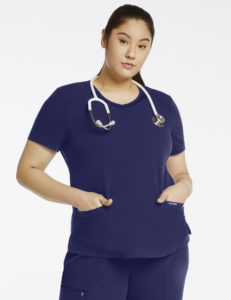We never know where life will take us, personally and professionally. Sometimes we think we have a clear idea of the path forward, and then—as the saying goes—life happens. Perhaps there’s an unexpected turn in our situation, or we simply need a change.
It’s normal to want a career change or to start down a path and feel like maybe it’s not for you. Recognizing this is a brave decision to put your wellbeing and interests first. If you thought nursing was the right option, congratulations. You’re doing the work of figuring out where you want to be in your life and the best way to help others.
In this article, we’ll look at similar jobs to nursing for people at all stages in their careers. Yes, that includes alternative careers for registered nurses, licensed practical nurses, non-hospital nursing jobs or non-traditional nursing jobs, and even good jobs for ex-nurses who are ready to transition into another position entirely.
The six jobs in healthcare that you can practice besides nursing

We said it before, and we’ll repeat it: It doesn’t matter where you are in your career. It’s always the right time for a change if you know it’s what you need.
In this list, we’ll get into some medical careers similar to nursing but require fewer (or different) credentials and years of schooling. So, if you’re still thinking about your education and not sure which way to turn, check out the first few options below. Then we’ll dive into options for those of you who already have nursing degrees and certifications.
Here’s our list of 6 careers after nursing:
Medical assistant
Consider becoming a medical assistant. You’ll do hands-on tasks like taking vital signs, drawing blood, and prepping patients. Then you’ll get into desk work, helping maintain records, schedule appointments and keep labs on track.
This support role in the healthcare field requires a certificate or associate degree to enter the field.
In the United States, the average annual salary for medical assistants is currently $34,800.
Respiratory therapist
If you’re looking for a role with direct patient care, you might consider becoming a respiratory therapist. You’ll be working with patients who depend on your help to administer and monitor oxygen and, in severe cases, resuscitate.
This role usually is held in the hospital and requires an Associate Degree in Respiratory Care.
In the United States, the average annual salary for respiratory therapists is currently $61,330.
Dental hygienist

If you’re looking for a lucrative career in healthcare—with a twist—try working in dentistry. You’ll be working directly with patients cleaning teeth, educating them on dental health and taking X-rays.
To become a dental hygienist, you’ll need an Associate Degree in Dental Hygiene.
In the United States, the average annual salary for dental hygienists is currently $76,220.
Nurse educator
Are you a nurse but also a natural teacher? This is the perfect role for someone who may want to transition from direct patient care. You’ll need to be a registered nurse (RN) to hold this role. You should also have clinical experience and be able to effectively communicate your ideas . If that sounds like you, jump in and start helping others learn about the role that’s so important to you.
You will likely need a Master of Science in Nursing (MSN) first, so get ready to hit those books (if you haven’t already).
In the United States, the average annual salary for nurse educators is $84,060.
Non-hospital nursing jobs
Perhaps you need a change of scenery, not a career. You may want to consider remote, non-hospital or private jobs for nurses. You could use your experience as a nurse to work in telemedicine, or as a legal consultant,case manager or researcher. Many of these roles are work-from-home friendly. You could also team up with an insurance company to help assess risks.
The average annual salary for non-hospital jobs ranges depending on the specifics.
Pharmaceutical sales representative
Your skills and experience are very valuable to pharmaceutical companies, so consider using your specialized knowledge to move into this field. You could also try consulting for one of these companies, as you have essential clinical knowledge that can help with research and development.
In the United States, the average annual salary for pharmaceutical sales reps is currently $84,060.

If you consider money a determining factor in your career leap, we don’t blame you. The list below includes some of the highest-paid healthcare roles that do not require becoming a doctor or nurse and their current average annual salary in the United States. Whether you’re looking for an option with a different educational path or one with a distinct type of work, there is something on this list for you:
1. Pharmacist (average annual salary: $126,120)
3. Physician assistant (average annual salary: $108,610)
4. Medical and health services manager (average annual salary: $99,730)
5. Biomedical engineer (average annual salary: $88,550)
6. Physical therapist (average annual salary: $87,930)
7. Occupational therapist (average annual salary: $84,270)
8. Radiation therapist (average annual salary: $82,330)
9. Genetic counselor (average annual salary: $80,370)
10. Speech-language pathologist (average annual salary: $77,510)
11. Nuclear medicine technologist (average annual salary: $76,820)
12. Dental hygienist (average annual salary: $74,820)
14. Chiropractor (average annual salary: $71,410)
15. Occupational health and safety specialist and technician (average annual salary: $69,370)
16. Orthotic and prosthetics professional (average annual salary: $69,120)
17. Diagnostic medical sonographer and cardiovascular technologist and technician (average annual salary: $67,080)
18. Radiologic and MRI technician (average annual salary: $61,240)
19. Dietitian or nutritionist (average annual salary: $60,370)
20. Respiratory therapist (average annual salary: $60,280)

